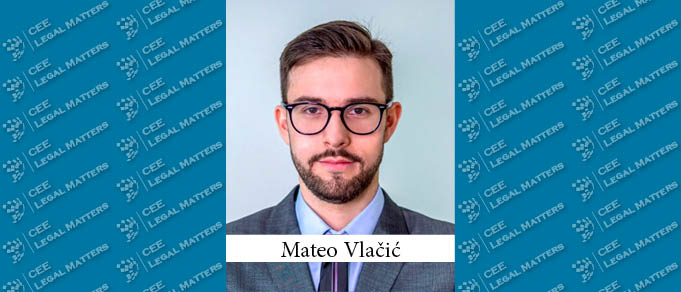The Russian Federation invasion of the Republic of Ukraine and the consequent economic response from the West has led to negative effects in the business of companies based in the Republic of Croatia.
Extensive sanctions imposed by EU countries to the Russian Federation threaten the business of companies cooperating with the Russian companies, or Russian-owned companies operating in the EU.
Since the Russian recognition of the territory of the Ukrainian regions of Donetsk and Luhansk and the beginning of the invasion of the Republic of Ukraine, the EU responded with four sets of restrictive measures containing: diplomatic measures, individual restrictive measures (asset freezing and travel restrictions), and the restriction of economic relations with Donetsk and Luhansk regions that are not government-controlled, which subsequently include economic sanctions, media sanctions and restrictions to economic cooperation.
However, what Croatian companies would be directly affected by the aforementioned sanctions?
Sanctions aimed at import and export of goods and technology
- Restriction of economic relations with the regions of Donetsk and Luhansk that are not under the government control pursuant to the Decision 2022/226 of the Council of the European Union
Under the Decision 2022/226, the import of goods from these regions, the sale, and the export of goods by EU member countries towards these regions are prohibited; likewise, it is also prohibited to export any goods to these regions from the territory of the EU member countries to any natural person or legal entity in these regions.
- Restrictions on the export of goods to Russian Federation under the Decisions 2022/327 and 2022/395 of the Council of the European Union
The second set of EU restrictions banned the sale and export of:
- goods and technologies used for oil refining;
- goods and technologies used in the aircraft and space industry as well as providing insurance and reinsurance services and maintenance related to such goods and technologies.
- dual-use goods and technologies and certain goods and technologies that could contribute to technological improvement of the Russian defence and security sector, which includes products such as semiconductors or other similar technologies.
Additionally, under the Decision 2022/395, the EU imposed a ban on the export of maritime and radiocommunication technology to any natural person or legal entity or body in Russia, for use in Russia or for installation on a Russian-flagged vessel.
- Restriction of import and export of goods under the Decision 2022/430 of the Council of the European Union
On March 15, the EU formally confirmed a fourth set of sanctions, which comprehensively includes restriction on export of equipment, technology and services for Russia's energy industry, and trade restrictions on iron, steel and luxury goods.
Trade restrictions ban:
- trade and import of iron and steel products originating, exported or located in Russia;
- direct or indirect sale, transfer or export of luxury goods such as vehicles, jewellery, clothing and various products worth over EUR 300.00, to any natural person or legal entity or body in Russia or for use in Russia.
These restrictions will affect the activities of some companies operating in the Russian market, partially due to the embargo of further import and export, and partially due to the impossibility of conducting transactions.
Financial sanctions
- Financial restrictions introduced by the Council of the European Union Decisions 2022/327, 2022/346 and 2022/430
With this set of restrictions, the EU has significantly limited the influx of funds from Russia to the EU prohibiting:
- receiving deposits from the Russian citizens or residents above certain amounts (EUR 100,000.00);
- handling accounts of Russian clients in central security depositories in the EU and the sale of euro-denominated securities to clients from Russia;
- conducting transactions with the Russian Central Bank or any legal entity; or body acting on behalf of or directed by the Russian Central Bank;
- sale, delivery, transfer, or export of banknotes denominated in euros to Russia or any natural person or legal entity, any entity or body in Russia, including the government and the Russian Central Bank, or for usage in Russia.
On March 12, the Council enforced the so-called SWIFT ban. The ban prohibited the provision of specialized financial communication services used for the exchange of financial information (SWIFT) to the following banks: Bank Otkritie, Novikombank, Promsvyazbank, Rossiya Bank, Sovcombank, VNESHECONOMBANK (VEB) and VTB BANK.
The SWIFT ban applies to all legal entities, or bodies with business originating in Russia in whose ownership rights the said banks directly or indirectly hold more than 50% stake.
In the fourth set of sanctions, the EU has, under the Decision 2022/430, banned new investments in the Russian energy sector and participation in any transaction with:
- a legal entity with the establishment in Russia that is state-owned or controlled by the state;
- non-EU legal entities, in whose ownership rights Russian state-owned companies directly or indirectly hold more than 50% of the shares;
- legal entities acting on behalf of the aforementioned companies.
As of April 15, this set of sanctions will prohibit the provision of credit rating services to all Russian citizens or natural persons residing in Russia and to all legal entities or bodies with the establishment in Russia.
The imposed EU restrictions in the financial sector will have an impact on the companies operating in the Russian market, with Russian citizens or Russian-owned companies, and companies with predominant Russian structure, forcing the board to embrace their way of doing business so that their cooperation as well as compensation would not oppose the EU restrictions.
By Mateo Vlacic, Associate, Ostermann & Partners

















